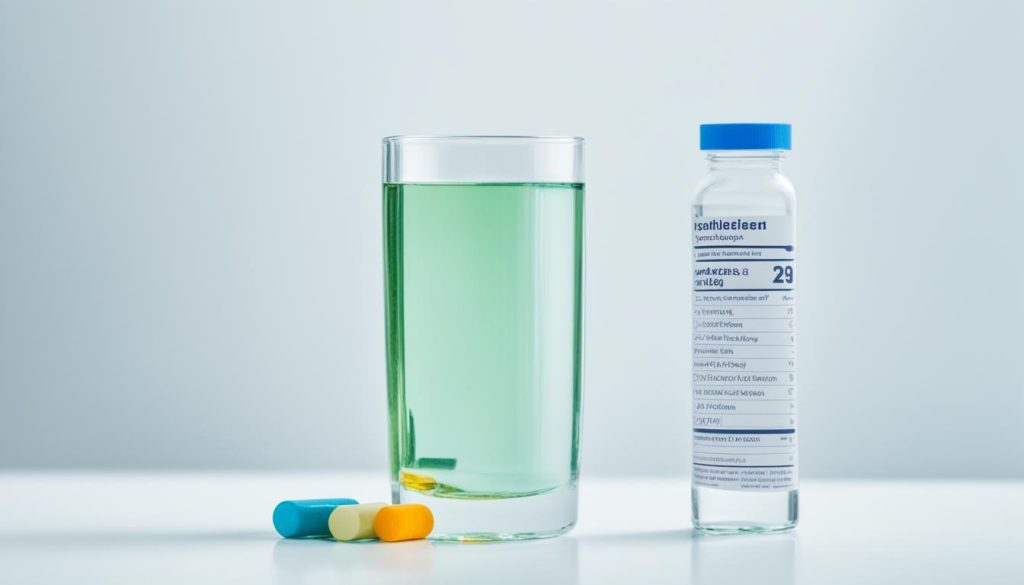Dealing with a stomach virus can be quite challenging, especially when you’re feeling miserable and want to get better quickly. While there may not be a specific medical treatment to cure viral gastroenteritis, commonly known as the stomach flu, there are steps you can take to alleviate symptoms and promote a faster recovery.
In this article, we will explore effective stomach virus remedies and self-care measures that can help you in your quest to get rid of a stomach virus in just 24 hours. From staying hydrated to following a bland diet, we’ll cover everything you need to know about stomach virus treatment.
When it comes to a stomach virus, one of the most crucial aspects of treatment is staying hydrated. Drinking plenty of fluids, such as water and oral rehydration solutions, is essential in preventing dehydration, a common complication of gastroenteritis. We’ll also discuss how to let your stomach settle by avoiding solid foods for a few hours and gradually reintroduce a bland diet that can help ease your symptoms.
To supplement the self-care measures, we’ll explore certain medications like loperamide or bismuth subsalicylate that can be helpful in managing diarrhea in adults. Additionally, we’ll provide guidance on how to support infants and children by ensuring they receive enough fluids and follow their normal diet once hydrated.
So if you’re eager to find stomach virus relief and quick recovery, keep reading to discover the most effective methods to get rid of a stomach virus in just 24 hours!
Symptoms and Diagnosis of the Stomach Flu
The stomach flu, also known as viral gastroenteritis, can cause a range of unpleasant symptoms that can disrupt your daily routine. Recognizing these symptoms and receiving an accurate diagnosis are key to finding the right stomach bug remedies and ensuring stomach virus fast relief. Here’s what you need to know about the symptoms and diagnosis of the stomach flu.
Common Symptoms
When a stomach virus strikes, it often brings along a host of uncomfortable symptoms, such as:
- Stomach pain: You may experience cramps or stomach aching in your abdomen.
- Nausea: A sensation of queasiness or feeling like you might vomit.
- Vomiting: The act of forcefully expelling the contents of your stomach through your mouth.
- Diarrhea: Frequent, loose, or watery bowel movements.
These symptoms can manifest as quickly as 12 hours after exposure to the virus, and they may last anywhere from one to 14 days. The severity of symptoms can vary from person to person, with some individuals experiencing mild discomfort and others facing more intense symptoms.
Diagnosis
In most cases, a diagnosis of the stomach flu can be made based on symptoms and a physical examination by a healthcare professional. The presence of similar cases in the community can also help point towards a stomach virus outbreak.
Rapid stool tests can be used to detect specific viruses like rotavirus or norovirus, but there are no quick tests available for other viruses that cause gastroenteritis. In some cases, a stool sample may be requested to rule out a bacterial or parasitic infection.
It’s important to consult with a healthcare professional for an accurate diagnosis if you suspect you have the stomach flu. They can provide stomach flu treatment options and recommend stomach bug remedies for stomach virus fast relief.

Understanding the symptoms and diagnosis of the stomach flu allows you to identify the illness and take appropriate action. With the right knowledge and guidance, you can effectively manage the stomach flu and find the stomach flu treatment in one day to help you get back on track.
How Do You Get Rid of a Stomach Virus in 24 Hours?
When dealing with a stomach virus, self-care measures are crucial for relieving symptoms and promoting recovery. By following these natural remedies and home remedies, you can find relief from the discomfort caused by a stomach virus.
1. Let Your Stomach Settle
After experiencing symptoms like nausea and vomiting, it’s important to let your stomach settle by avoiding solid foods for a few hours. This period of rest allows your digestive system to recover.
2. Gradually Reintroduce a Bland Diet
Once your stomach has settled, you can begin reintroducing a bland diet consisting of easy-to-digest foods. Foods like soda crackers, soup, oats, noodles, bananas, and rice can be gentle on your stomach and help alleviate symptoms.
3. Avoid Trigger Foods
Avoiding certain foods and substances is recommended until you start feeling better. Stay away from caffeine, alcohol, nicotine, and fatty or highly seasoned foods, as these can aggravate your stomach and prolong your recovery.
4. Get Plenty of Rest
Rest is essential during a stomach virus episode. The illness and dehydration can leave you feeling weak and tired, so it’s important to prioritize getting plenty of rest to aid your body’s recovery process.
5. Consider Natural Remedies
While there is no specific cure for a stomach virus, some natural remedies may provide relief. Ginger, for example, has long been used to soothe nausea and settle the stomach. You can try ginger tea or ginger ale to alleviate these symptoms. Peppermint tea may also help ease digestive discomfort.
6. Use Medications Wisely
In some cases, adults may find relief from anti-diarrhea medications like loperamide (Imodium A-D) or bismuth subsalicylate (Pepto-Bismol). However, it’s important to avoid these medications if there are signs of another condition such as bloody diarrhea or fever. Always consult a healthcare professional before taking any medication.
7. Focus on Rehydration for Children
When it comes to infants and children, the main focus during a stomach virus is rehydration. Ensure they are getting enough fluids and follow their normal diet once they are adequately hydrated. Gradually reintroduce their regular foods to support their recovery.
By following these self-care measures and utilizing natural and home remedies for stomach virus relief, you can manage your symptoms and promote a quicker recovery.

Prevention and Protection Against Stomach Flu
Preventing the spread of the stomach flu and protecting against it can be challenging due to its highly contagious nature. However, there are measures that can be taken to reduce the risk:
- Immunization: Infants can be protected against one of the common viruses that cause gastroenteritis by receiving the rotavirus vaccine.
- Hand Hygiene: Practicing proper hand hygiene is crucial in stopping the spread of germs. Remember to wash hands frequently with soap and water, especially after using the restroom, changing diapers, and before preparing or consuming food.
- Disinfection: Eliminating viruses from commonly touched objects and surfaces in the home can help prevent the transmission of the stomach flu. Regularly disinfect items such as doorknobs, countertops, and toys.
- Separate Laundry: During a stomach flu episode, it is advisable to separate laundry loads to prevent the spread of germs. Wash clothing, bedding, and towels separately from other items.
- Avoid Sharing Food: To reduce the risk of contracting the stomach flu, avoid sharing food and utensils with others, especially during an outbreak.
Following these preventive measures can significantly lower the risk of contracting the stomach flu and protect yourself and others from the illness.
Comparing Stomach Virus Prevention Measures
| Prevention Measures | Effectiveness | Recommended Action |
|---|---|---|
| Immunization | Highly effective in preventing specific viruses like rotavirus | Consult healthcare provider to determine eligibility for vaccination |
| Hand Hygiene | Significantly reduces the risk of spreading germs | Frequent handwashing with soap and water for at least 20 seconds |
| Disinfection | Helps in eliminating viruses from surfaces | Regularly disinfect commonly touched objects and surfaces |
| Separate Laundry | Reduces the chances of spreading the virus through clothes | Wash contaminated items separately, using hot water and detergent |
| Avoid Sharing Food | Prevents direct contact and transmission of the virus | Refrain from sharing food, utensils, and drinks with others |

When to Seek Medical Attention for the Stomach Flu?
In most cases, the stomach flu resolves on its own within a few days with proper self-care. However, there are instances where medical attention may be necessary. It is important to be aware of the following symptoms that may indicate the need for urgent medical attention:
- Severe dehydration: If you are unable to keep fluids down or notice signs of severe dehydration such as dry mouth, dizziness, or dark-colored urine, it is essential to seek medical help immediately.
- Bloody stool or vomit: The presence of blood in your stool or vomit can be a sign of a more serious condition and requires prompt medical evaluation.
- Vomiting for more than 24 hours: If you have been vomiting continuously for more than 24 hours without any signs of improvement, it is recommended to contact a healthcare provider for further evaluation and treatment.
- High fever: A persistent high fever, typically above 101 degrees Fahrenheit, may indicate a bacterial infection and should be evaluated by a healthcare professional.
- Weight loss: If you experience significant weight loss during a stomach flu episode, seeking medical attention is important to determine if any underlying conditions need to be addressed.
- Severe abdominal pain: Intense or prolonged abdominal pain that is not relieved with self-care measures may require medical assessment to rule out other potential causes.
- Prolonged symptoms lasting more than a week: If your symptoms persist or worsen beyond a week, it is advisable to consult with a healthcare professional for further evaluation and treatment.
In addition to the above, it is important to seek medical attention for infants, young children, pregnant individuals, and those with weakened immune systems to prevent complications. If you have any concerns about the diagnosis or if the symptoms worsen or persist, it is always best to consult with a healthcare professional who can provide appropriate guidance and care.

Conclusion
The stomach flu, also known as viral gastroenteritis, can be a challenging and uncomfortable illness. However, with proper self-care measures and preventive actions, individuals can effectively manage and recover from a stomach virus.
To ensure a quick recovery, it is crucial to stay hydrated by drinking plenty of fluids such as water and oral rehydration solutions. Following a bland diet that includes easy-to-digest foods can help ease symptoms. Getting ample rest and sleep supports the body’s healing process during a stomach virus episode.
Prevention plays a vital role in reducing the risk of contracting the stomach flu. Immunization, such as vaccination against the rotavirus, can provide protection against one of the common viruses causing gastroenteritis. Practicing proper hand hygiene, disinfecting surfaces, and avoiding sharing food can effectively stop the spread of germs.
If severe symptoms or concerns about the diagnosis arise, it is important to seek medical attention. Healthcare professionals can provide appropriate guidance and treatment options based on individual circumstances. With patience, rest, and proper care, most individuals can experience a quick recovery from a stomach virus.





